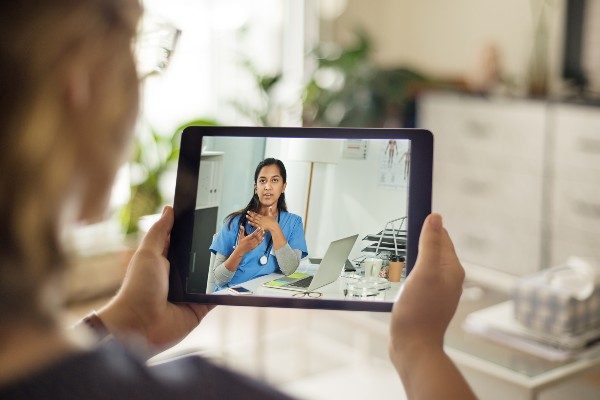If you’ve put off going to the doctor during these times, you’re not alone. The CDC estimates that 41% of adults have delayed or avoided care because of COVID concerns.
While certain things can wait—like parties or vacations—your health can’t. After all, medical conditions don’t take breaks.
Healthcare might look a little different during COVID-19, but what’s most important is that your care continues. Here’s what the Riverside team recommends.
Now’s the time to reschedule preventive visits.
When’s the last time you had a physical? What about routine screenings? If you’ve been putting them off due to COVID-fears (or they simply slipped your mind with everything else going on), make time to prioritize your health.
Cancer screenings
If you’ve delayed a preventive screening like a colonoscopy, mammogram or other cancer screening, now is the time to get it back on the books. Early detection remains key to successfully treating these diseases. Watch this video to learn how we’re keeping our diagnostic and imaging facilities safe and what to expect.
Routine preventive care visits
Behind on your yearly visits? A good place to start is scheduling a virtual appointment with a primary care doctor. Based on your conversation, medical history and symptoms, they’ll let you know whether you need an in-person visit or follow-up tests to keep up with your health goals.
Keep memory care top-of-mind.
Everyone wants to keep their high-risk loved ones safe during the pandemic. Besides minimizing infection risk, caring for a senior also means being “memory care aware.”
Advocate for loved ones by staying vigilant
Checking in frequently with older loved ones and remaining alert to any troubling (or worsening) symptoms is particularly important considering that many seniors are more isolated from their social circle or activities.
Keep up with treatment plans while watching for new symptoms
Help keep your loved ones on top of treatments and medications; keep in mind they may need assistance requesting refills or navigating their medical records. Be sure to let a doctor know about any new signs of memory loss.
You can minimize exposure risk by scheduling a video visit or e-visit.
Never ignore a new symptom.
You’re probably aware of the symptoms of COVID-19 (and, hopefully, taking precautions). But even in quarantine, heart attacks, strokes, appendicitis and other acute illnesses can occur.
Every moment counts in an emergency
Call 911 or go to the emergency room if you experience chest pain, stroke symptoms, severe abdominal pain or other emergency symptoms. Rest assured that our emergency and trauma facilities are taking strict precautions to keep you safe.
Keep chronic conditions under control.
Now is not the time to fall behind on check-ups and lab tests. If anything, it’s more critical now to optimize your health.
Diabetes and heart disease
Keeping your body in fighting shape means staying on top of existing conditions like heart disease and diabetes. If you’ve been diagnosed and haven’t checked in with your doctor or had regular labs done in a while, call your doctor’s office to schedule a visit.
Chronic pain conditions
If you’re managing a painful chronic condition like arthritis, migraines or fibromyalgia, know that you don’t have to suffer through it alone. Our team is still here to help you find relief through video appointments or safe in-person visits.
Know what to expect during your visit.
If you have a medical concern, chronic illness or preventive appointment that you’ve been putting off, we hope you won’t delay treatment any longer. Knowing what to expect during a virtual or in-person medical visit can help ease nerves and make appointments go smoothly.
Click here for more information on managing your health and medical appointments during COVID-19, including options for your visit, frequently asked questions, the latest COVID guidelines and more.
